Grilled Foods For Chronic Kidney Disease
The smell of a delicious summer barbecue can evoke feelings of joy and nostalgia. As the smoke rises from the grill, you can almost taste the juicy burgers and succulent steaks that are waiting to be served.
But did you know there’s more to grilling than just good food? For those living with chronic kidney disease, grilled foods can provide much-needed nutrients without overloading their systems.
In this article we’ll explore how cooking on the grill helps people maintain their health while still enjoying flavorful meals. Grilled foods for CKD might just change your life! Some of these meal ideas are similar to picnic meals for pre-dialysis CKD!
Grilling is a great way to get your daily intake of proteins which are necessary for healthy muscle growth and maintenance.
Because grilled foods often require less oil or butter than other methods of preparation, they help keep calories down so your diet won't affect your weight too drastically.
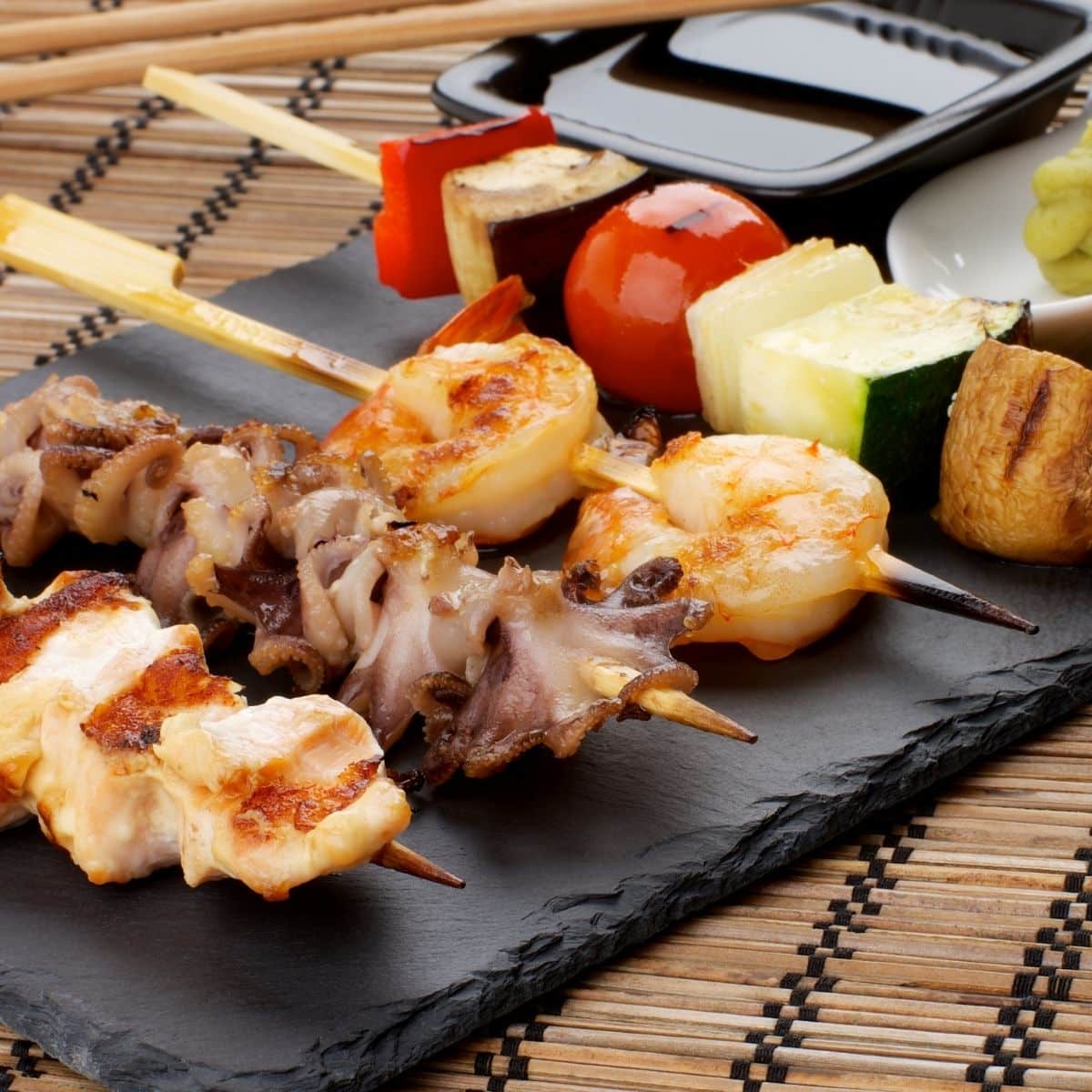
Grilling is fun and produces some of the most delicious foods, but there is even more good news. Most meals made on the grill are much healthier than foods that you might cook on the stove or order from a restaurant.
This is because grilling is a very clean and low fat way to cook. Not only that, but people are a lot less likely to add extra fats, like oil or butter, to their foods when grilling which is great for improving your kidney health.
There are so many delicious and healthy, kidney friendly foods that you can make on the grill.
Jump to:
- Benefits Of Grilling
- Tips For Safe Grilling Practices
- Vegetables Suitable For Grilling
- Fruits Suitable For Grilling
- Dairy Foods Suitable For Grilling
- Meat And Poultry Suitable For Grilling
- Fish And Seafood Suitable For Grilling
- Sauces, Marinades, And Rubs To Enhance Flavor
- Common Questions About Grilling and CKD
- Grilling On Your Diet Can Be Delicious and Easy!
Benefits Of Grilling
Grilling can be a great way to prepare healthy meals for people with many chronic diseases. It is an easy and delicious cooking method that allows you to make flavorful, low-sodium dishes without adding much fat or salt.
Grilled chicken is often recommended as part of a balanced diet for those with CKD. Not only does it provide essential protein, but it also contains vitamins and minerals like iron, potassium, vitamin A and zinc which are beneficial in managing the disease.
For people with kidney disease, grilling offers many advantages over other methods of cooking. First, it requires very little oil or butter so your meal will have fewer calories and saturated fats than deep-fried foods.
Since no additional liquid needs to be added when grilling food items like fish or vegetables, they don't become waterlogged; meaning less flavor is lost during the cooking process. There are actually a ton of water rich foods.
Finally, marinating meats before grilling helps impart bold flavors and tenderize them at the same time!
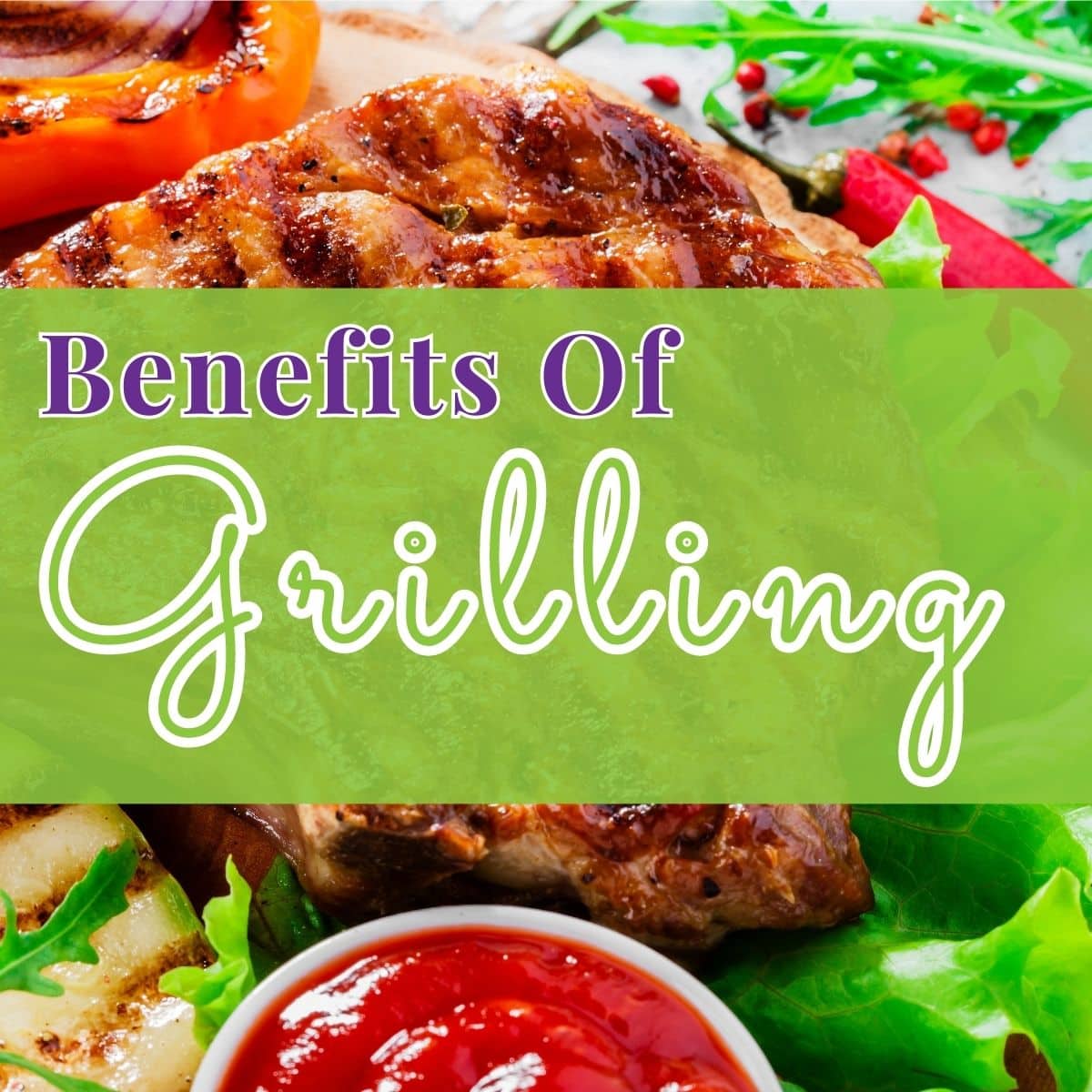
Healthy recipes for grilled foods abound online making it easier than ever to find tasty ideas for dinners on the grill.
Low sodium grilled chicken served with a side of grilled veggies makes a satisfying yet nutritious meal that's ideal for anyone dealing with cardiovascular disease.
And there are countless other healthy meals to try - from salmon filets paired with fresh herbs to Portobello mushroom burgers topped with melted cheese (cheese kidney disease), all made even better by being cooked over open flames!
Tips For Safe Grilling Practices
Grilling can be a great way to prepare nutritious meals for those living with chronic kidney disease. With some planning and preparation, it’s possible to enjoy delicious grilled food without putting your health at risk.
Here are some tips to help you maximize the benefits of grilling while keeping yourself safe:
- Use Salt-Free Marinades: To reduce salt intake, use marinades that don't contain any added milligrams of sodium. Options such as lemon juice, vinegar or garlic are all excellent alternatives to store bought sauces which often have high amounts of sodium. Furthermore, consider using herbs and spices instead of salt when seasoning your meats before cooking them on the grill.
- Diabetic Grilling Recipes: There are plenty of recipes available online that cater specifically to the needs of people with diabetes. Examples include healthier versions of classic grilled items such as burgers, steaks and fish tacos made with low glycemic ingredients like sweet potatoes or cauliflower in place of white flour buns or tortillas.
- Healthy Meats to Grill: When selecting meats for grilling, opt for leaner cuts like chicken breast and pork tenderloin instead of fattier options like ground beef or ribs. This helps keep saturated fat levels down which is beneficial for both heart health as well as reducing inflammation associated with CKD. Consider adding beans or lentils alongside these proteins for an even more nutrient dense meal!
Don't forget to pay attention to renal diet meat portion control.
It's important not to forget about safety when preparing fresh meat or other food on a charcoal grill.
Make sure the coals have had enough time to cool off before disposing of them after each session and always wear gloves whenever handling the hot charcoal briquettes no matter how long they've been burning. It's better to be safe than sorry!
Finally, never leave a lit grill unattended and keep children away from the area at all times while grilling outdoors.
For More Recipes and Ideas --->> Get Your Free Meals and Recipes That Are Perfect for Pre-Dialysis Diets, Pre-Dialysis with Diabetes, or Dialysis Diets.
Vegetables Suitable For Grilling
Grilling is a great way to enjoy delicious, healthy meals. It helps reduce the amount of sodium and other unhealthy ingredients used in cooking. Pay attention to fresh or canned vegetables for a renal diet!
Grilled vegetables are some of the best choices when considering grilled foods for CKD, since they often contain low amounts of potassium and phosphorus. Here’s a look at some excellent vegetables suitable for grilling:
| Vegetable | Benefits & Tips |
| Onions | Grilled onions are not only tasty but also good for diabetics due to their low glycemic index compared to raw onions. Slice into thick rings before grilling so that they don't get burnt too quickly! |
| Zucchini/Squash | These veggies need less than 10 minutes on the grill until tender. Use olive oil or butter as marinade along with herbs and spices like garlic powder, oregano and parsley - this will give them an extra flavor kick! |
| Eggplant | Grill slices directly over medium heat; turning once every few minutes until tender and lightly charred around edges. Baste with your favorite sauce while cooking to add even more flavor! |
Are grilled onions good for diabetics? Onions are rich in fiber, vitamins, minerals, and antioxidants - all important nutrients for anyone looking to maintain optimal health. They don't contain any fat or cholesterol and the phytochemicals found in them may even help reduce inflammation associated with some forms of diabetes.
The options don’t end there; you can also try green beans, bell peppers, mushrooms, sweet potatoes, cauliflower, tomatoes and more.
Experiment with different marinades and sauces to create unique flavors, such as teriyaki glaze or spicy Thai-style peanut sauce. So take advantage of the grilling season by making tasty dishes from these nutritious vegetables!
There are many vegetables low in phosphorus and potassium that you can take advantage of!
Parmesan Zucchini Logs
Ingredients:
- Fresh zucchini, cut in half lengthwise
- Fresh or dried parsley
- Shredded parmesan cheese
- Fresh cracked pepper
- Turkey bacon, cooked and crumbled
- Using a spoon, hollow out part of the zucchini. Sprinkle on a small amount of turkey bacon and parmesan cheese.
- Top with parsley or any of your other favorite fresh or dried herbs, and fresh cracked pepper.
- Lay skin side down on the grill and close the lid.
- Cook until the cheese is bubbly and zucchini is cooked through. Serve with rice.
Fruits Suitable For Grilling
Grilling fruits is a great way to enjoy a tasty and healthy meal. Fruits are an excellent source of vitamins, minerals, and phytonutrients, making them the perfect addition to any grilled dish.
When grilling fruits for chronic kidney disease (CKD), it’s important to keep in mind that some fruits may not be suitable due to their sugar content or other potential health risks. Learning how to manage chronic kidney disease gets easier with every single fruit you grill.
Options like apples and peaches make delicious additions to your grilled dishes. Apples can be cut into wedges, tossed with cinnamon and nutmeg and then placed directly on the grill for a sweet treat.
Peaches can also be sliced in half and lightly brushed with olive oil before being cooked over medium-high heat until caramelized.
Other options include pineapple rings which can be marinated in lime juice prior to cooking or kiwi fruit slices that can simply be skewered and placed directly onto the grill.
When looking for kidney friendly dinner ideas on the grill for CKD patients, incorporating these grilled meats recipes along with grilled fruits makes for a balanced meal full of essential nutrients.
Grilled foods offer a variety of nutritious options while still providing plenty of flavor — so don't hesitate to explore different types of ingredients when creating your next grill dinner idea!
Dairy Foods Suitable For Grilling
It's time to move on from the delicious fruits that can be grilled and look into dairy foods suitable for grilling. Check out this full list of kidney friendly fruits!
Although some people may not think of dairy when it comes to grilling, there are a few options that work great!
- Grilled cheese sandwiches make a yummy lunch or dinner option. Just be sure to use reduced fat cheese, whole wheat bread, and low-sodium butter or margarine to keep sodium levels in check.
- If you're looking for something heartier than a sandwich, try making quesadillas using reduced fat cheddar cheese, sliced bell peppers, red onions, spinach leaves and black beans – all wrapped up in two whole grain tortillas.
Meat And Poultry Suitable For Grilling
Grilling is a great way to enjoy delicious and nutritious foods with chronic kidney disease. Low-sodium recipes such as grilled chicken can be an enjoyable part of any meal plan while complying with dietary restrictions.
You can start following a low sodium kidney diet and still enjoy meat and poultry for grilling.
Lean pork, when cooked on the grill, provides essential vitamins and minerals that support overall health. But it's important to understand if chicken is good for people with kidney disease before adding this source of protein to your menu.
Is chicken okay for people with kidney disease?
Chicken is an excellent source of cooked meat that is lean protein which makes it a great choice for those on low-protein diets who are watching their renal diet meat portion control due to any one of several chronic diseases.
It has a mild taste so it won’t overpower other flavors when grilling and its white meat is much lower in saturated fat than red meats like beef. Cooking chicken on the grill means no added oil or butter needed!
There are many low sodium grilled chicken recipes available online; however, some may contain high amounts of phosphorus or potassium, so you should check nutrition labels carefully before preparing them.
Grilled skinless chicken breast is excellent for those looking to reduce their intake of these two elements in their diet. As long as marinades are made without salt they can also help add flavor without compromising nutritional value.
Are grilled meats healthy? Grilled meats such as steak and pork chops provide essential amino acids required by our bodies but should not necessarily be avoided if you have chronic kidney disease.
To make sure these foods are part of your diet without putting strain on your kidneys: opt for leaner cuts. You should also avoid marinades containing salt; and remove visible fat before grilling.
Make sure you are cooking the meat thoroughly, until juices run clear; and limit portion size according to dietary needs prescribed by your doctor or dietitian.
Chicken and Pepper Kabobs
Ingredients:
- Skinless, boneless chicken breasts- cut into cubes
- Onions
- Bell Peppers (all colors)
- Mushrooms
- Zucchini
- Marinade: equal parts olive oil and apple cider vinegar, generous amount of minced garlic, thyme, parsley, black pepper
- Marinade chicken cubes for at least one hour.
- Cut all of your veggies into cubes. Skewer chicken and veggies on kabobs and place directly on the grill.
- Cook each side for 1-2 minutes until chicken is cooked through.
- Serve with rice or pasta salad.
When grilling pork, look out for cuts like loins and chops which have less fat than other parts of the animal.
This helps keep the amount of calories in check while giving diners the taste and texture they love from barbecued meats.
Leaner cuts can benefit from using a marinade too; just make sure it doesn't include added sugars or salts which could increase its nutrient content beyond what would fit into a CKD Diet plan.
How to Make Grilled Sandwiches
Grilled sandwiches are a delicious and easy way to enjoy the flavor of deli meats such as roast beef.
- Start by lightly buttering two slices of bread, then place the deli meat on one side of the bread.
- Place the other slice of bread on top, then place the sandwich on a preheated grill.
- Grill until the bread is golden brown.
- Flip the sandwich over and cook the other side until golden brown.
- Remove from the grill and enjoy your hot and delicious grilled sandwich!
- For a more flavorful sandwich, try adding American cheese or other condiments to your sandwich before grilling.
Regardless of whether you choose poultry or pork for your next cookout, there are plenty of options that provide great flavors and textures while remaining within dietary guidelines set by doctors for those with renal disease.
Enjoying food safety for people with kidney disease on special occasions makes managing nutrition more bearable over time!
Fish And Seafood Suitable For Grilling
Grilling is a great way to cook fish and seafood. For those with different stages of chronic kidney disease, it's important to choose low-sodium options when grilling.
Here are some delicious recipes for grilled fish and seafood that won't increase your risk of sodium intake:
- Grilled Salmon with Grilled Onions - This delicious recipe uses fresh salmon fillets marinated in olive oil, garlic, lemon juice, and herbs before being placed on the grill alongside sweet onions. The result is an incredibly flavorful meal which can be served hot or cold. It's also high in protein but low in sodium, making it perfect for people with chronic kidney disease.
- Lemon Pepper Shrimp Skewers - A favorite among many seafood lovers, this simple dish utilizes shrimp cooked on skewers over medium heat until they turn pink. Lemon pepper seasoning adds flavor without adding extra salt. To make this dish even healthier, serve it with a side of grilled onions instead of white rice.
- Fish Tacos - Fish tacos are a classic Mexican dish made by lightly frying tilapia filets and topping them off with shredded lettuce, tomatoes, salsa Verde sauce and cilantro lime dressing. Serve these tacos using corn tortillas as opposed to flour ones to reduce their overall sodium content. They're sure to satisfy any craving!

Grilled Fish and Sweet Onions
Ingredients:
- Fresh or fresh frozen (thawed) fish filets (Tilapia, Mahi, or Flounder are great choices)
- Large sweet yellow onions, thickly sliced.
- Fresh rosemary (or dried)
- Lemon or lemon juice
- Olive Oil
- Garlic, crushed or minced
- In a small bowl, combine olive oil, lemon juice, rosemary, and garlic.
- Place thick slices of sweet onion down on the grill and place fish filets on top of the onion.
- Brush the tops of the fish with the olive oil mixture.
- Cook with top down until fish is cooked through.
With careful consideration of ingredients used when grilling fish and seafood dishes, individuals living with chronic kidney disease can enjoy healthy meals without worrying about excessive sodium intake.
Whether you opt for grilled salmon with grilled onions or fish tacos topped off with kidney friendly salad dressing, there are plenty of delightful choices available to make your next barbecue special while keeping your health in check!
Sauces, Marinades, And Rubs To Enhance Flavor
Savory sauces, succulent marinades, and zesty rubs can tantalize taste buds while supporting the health of those with chronic kidney disease.
From flavorful fish fry batters to delectable dressings for salads, these ingredients add a delicious dimension to grilled meals.
- The options are as varied as they are scrumptious:
- Sauces (look for low sodium versions):
- Barbecue sauce, Tartar sauce, Soy sauce
- Marinades:
- Teriyaki marinade, Italian dressing, Honey mustard glaze
- Rubs:
- Garlic powder blend, Lemon pepper seasoning mix, Cajun spice mix
Whether you’re in the mood for something sweet or spicy, there’s an option that will fit your fancy without sacrificing nutrition.
Low-sodium versions of favorite sauces and mixes make it easy to indulge without sacrificing flavor - so you can enjoy healthier grilling every day!
Common Questions About Grilling and CKD
When it comes to cooking with chronic kidney disease, the best type of grill for this purpose can be a difficult question to answer.
After all, there are many types of grills available on the market today and each one has its own unique features that make them suitable for certain applications.
To help you find the perfect grill for your needs, let’s take a look at some of the key considerations when shopping for a grill.
First, consider what type of fuel source is most convenient and cost-effective for you. Electric grills require an outlet nearby but tend to heat up quickly and evenly while gas grills provide great control over temperature levels and allow you to cook food faster than other options.
Charcoal grills offer superior flavor but may not be practical if space or access to charcoal is limited.
Second, think about how much space you have available in your backyard or patio area where you plan to use the grill. Different sizes of grills will suit different sized spaces so make sure you choose something appropriate.
Also, try out several models before purchasing; getting hands-on experience with how each one operates will give you a good insight into which one might work best for your needs.
Finally, don't forget convenience - look for features such as easy cleaning systems and built-in thermometers so that using the grill doesn't become more hassle than necessary!
Taking these factors into account should ensure that you get the right kind of grill suited specifically towards cooking meals safely with chronic kidney disease.
When it comes to adapting your diet for chronic kidney disease, grilling can be a great option. But many people want to explore different cooking styles in order to keep their meals interesting and healthy. So what are some good alternatives to grilling when dealing with chronic kidney disease?
The answer is simple: there are plenty of options! For instance, baking or roasting meats and vegetables over dry heat is an excellent choice that preserves the nutrients while still providing delicious flavor.
You could also try stir-frying foods using low sodium vegetable broth or chicken broth kidney disease as a base instead of oil – this provides subtle flavoring without adding unnecessary fat or salt.
Finally, poaching food (i.e., boiling) in water can help retain essential minerals and vitamins which may otherwise be lost during other forms of cooking.
These methods not only provide tasty results but they’re also much healthier than deep frying or pan-searing, both of which involve heating large amounts of oil at high temperatures.
No matter how you decide to cook your meals, remember the key is moderation. Use small amounts of healthy oils such as olive or coconut oil whenever possible, avoid processed foods filled with unhealthy fats and sugars, and limit your intake of added salts and seasonings.
With these tips in mind, you'll be able to enjoy flavorful dishes on a regular basis without compromising your health!
When it comes to grilling for chronic kidney disease, there are some additional precautions that should be taken. It can be tempting to keep the same routine of grilling food but with a medical condition like this, it is important to consider all aspects of safety and nutrition.
It is essential that individuals ensure they are using clean utensils and surfaces during the preparation process.
Cross-contamination from raw meats can cause serious problems due to weakened immune systems associated with CKD and other illnesses so these steps must be taken very seriously.
Furthermore, marinades used on items prior to cooking should be kept separate and discarded after removing the raw meat to reduce the risk of cross contamination and food poisoning.
No matter how prepared one might feel going into grilling season with CKD, it's always best practice to consult a doctor or nutritionist before making any drastic dietary changed or switching to a CKD Diet plan. Especially when health conditions complicate things further.
With the guidance of a professional’s opinion, along with following the aforementioned tips for safe grilling practices, those living with chronic kidney disease can enjoy delicious barbecues without fear of complications down the line!
When it comes to grilling with chronic kidney disease, one of the most important things to consider is how much sodium you’re eating—especially if you already have high blood pressure or other health issues resulting from your condition. Following a low sodium kidney diet is so important!
To keep on top of this, start by checking labels before buying ingredients and look for no-salt added options wherever possible. If you're marinating meats or vegetables prior to cooking them on the grill, be sure to use a low-sodium option or create your own version at home.
In addition to monitoring salt intake when preparing grilled foods for someone with chronic kidney disease, another tip is to stay away from processed meats like hot dogs or sausages which tend to contain preservatives linked with increased health risks.
Instead opt for lean proteins such as chicken breasts and fish filets since these will provide more nutrition than their pre-packaged counterparts. While you can also incorporate plant-based proteins like tofu into your meal plan too!
As an extra precaution, try not charring meat too much during the grilling process because charred areas often contain carcinogens that could harm your kidneys even further.
Eating well when learning how to manage chronic kidney disease doesn't mean giving up flavor. Some simple adjustments to your recipes will help make grilling enjoyable again!
With careful planning and preparation, people living with CKD can continue making healthy choices while enjoying nutritious meals cooked over an open flame.
First and foremost, individuals with CKD should monitor their salt intake closely. Grilled foods tend to have high amounts of sodium due to marinades and rubs used in preparation.
Excess sodium can lead to an increase in blood pressure which could worsen the symptoms of CKD. Additionally, when grilled at high temperatures, certain chemicals from the smoke produced by burning fat or meat proteins can also endanger health.
These chemicals have been linked to increases in inflammation throughout the body as well as cancer risk.
It's important for people with CKD to keep these potential dangers in mind while preparing meals on the grill. However, there are ways you can reduce these risks while still enjoying your favorite grilled dishes.
It is essential that one uses low-sodium marinades and spices instead of relying on heavily salted seasonings. If possible opt for leaner cuts of meats such as fish or chicken breast over fattier options like bacon or ribs so less smoke will be produced overall during cooking.
Lastly, use lower heat settings and cook smaller portions more frequently rather than large portions all at once as this reduces exposure time to harmful compounds contained within smoke particles released by grilling processes.
By following these tips you can ensure that you're able to reap the many benefits of grilling without risking too much harm along the way!
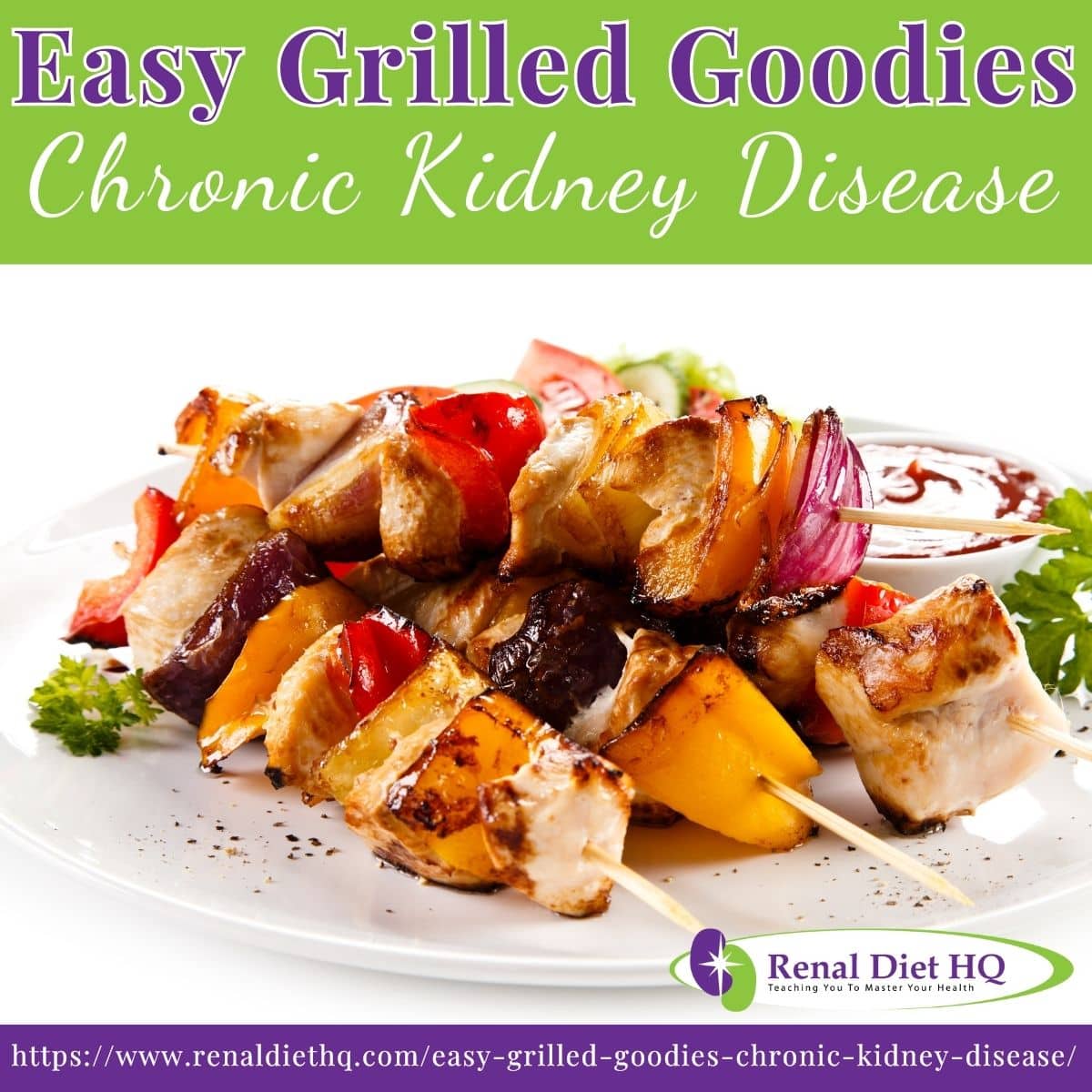
Grilling On Your Diet Can Be Delicious and Easy!
As someone living with chronic kidney disease, you have to be very mindful of what you eat. Grilling can certainly help make your meals healthier and more flavorful, but certain precautions should be taken when grilling for those with a CKD Diet plan.
It’s important to know the best type of grill to use as well as good alternatives in case grilling isn't an option. Consider the tips we discussed so that you can enjoy grilled foods safely.
Grilled food doesn't have to mean sacrificing flavor or nutrition in order to get a healthy meal. With careful consideration and some knowledge of the health risks associated with grilling, I'm confident that anyone with chronic kidney disease can still enjoy delicious grilled foods without compromising their health.
By making small changes like avoiding high-fat cuts of meat and using marinades low in sodium, phosphorus and potassium, you'll find it much easier to create nutritious and tasty dishes while managing your condition.
At the end of the day, remember that incorporating grilled foods into your diet is all about balance. Everyone's body reacts differently; experiment with different flavors and ingredients until you find something that suits your individual tastes and nutritional needs.

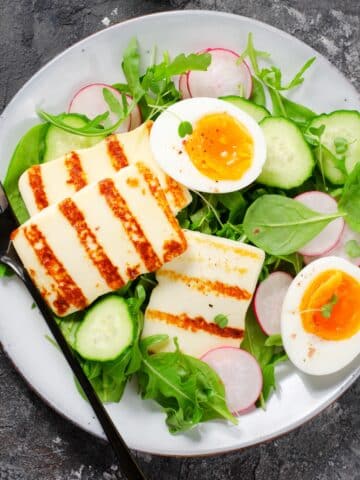


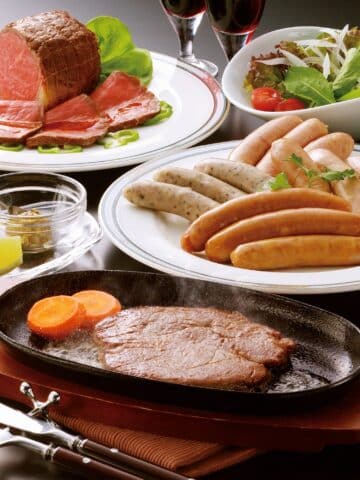
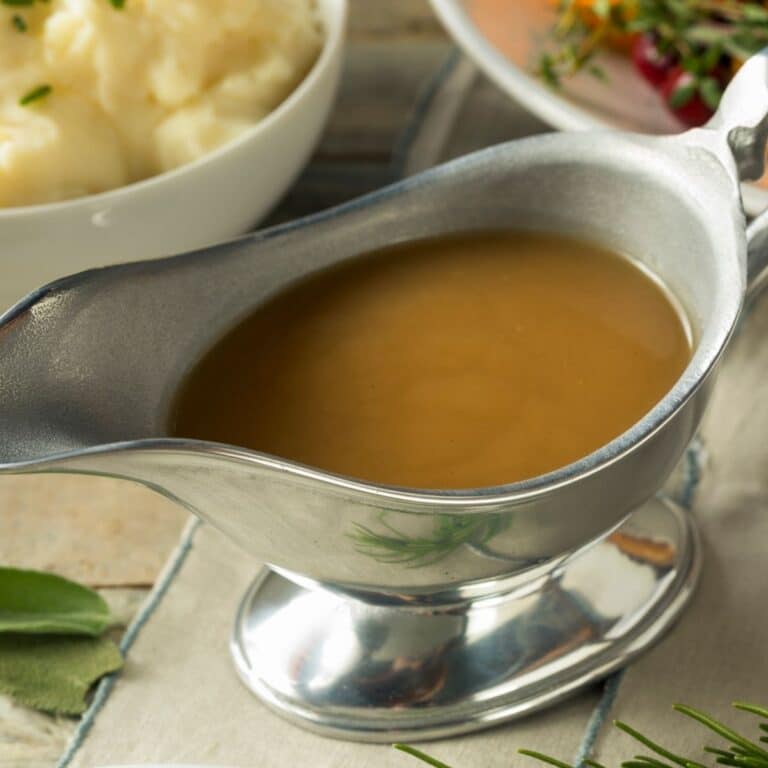
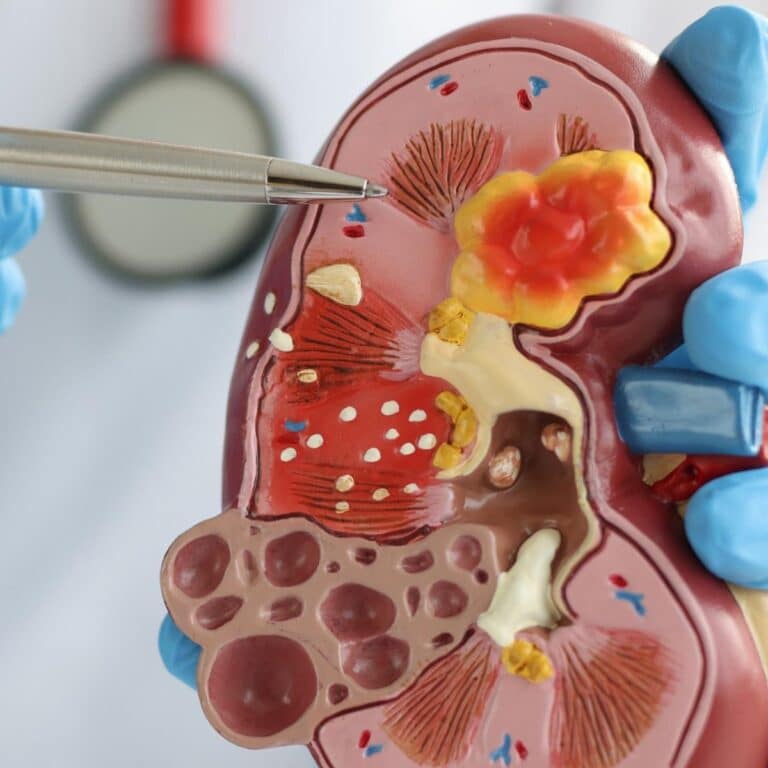
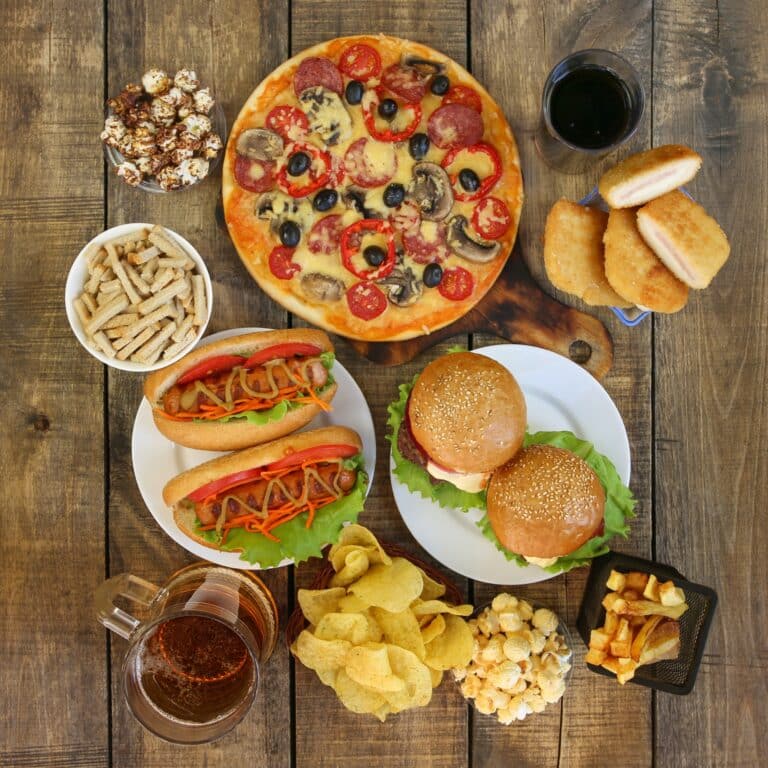
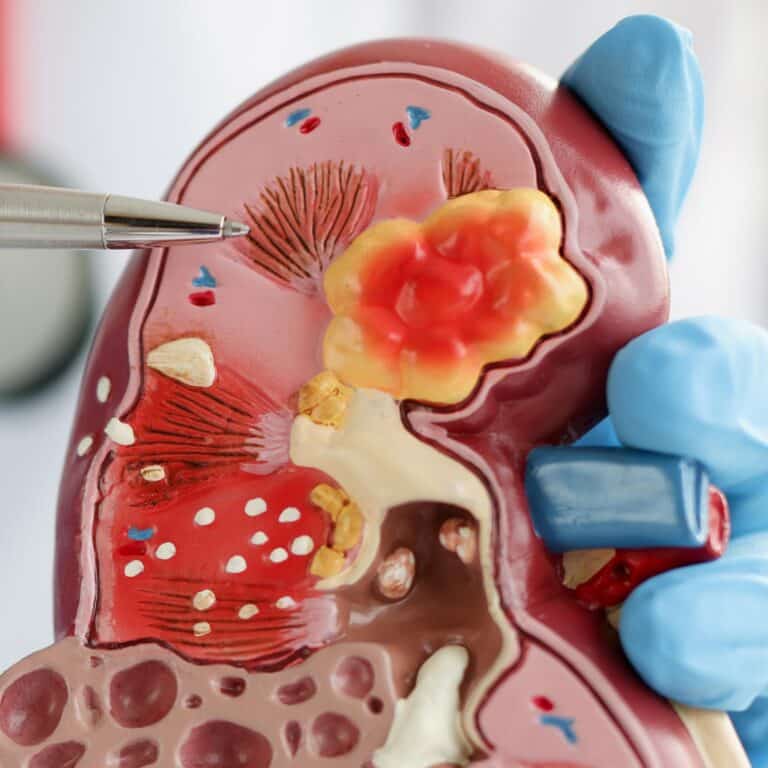
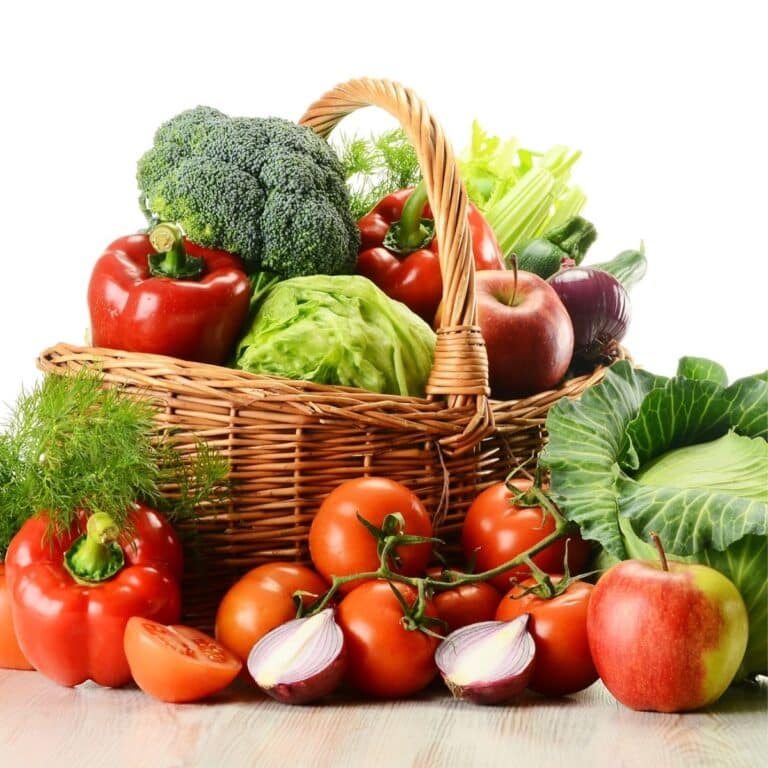
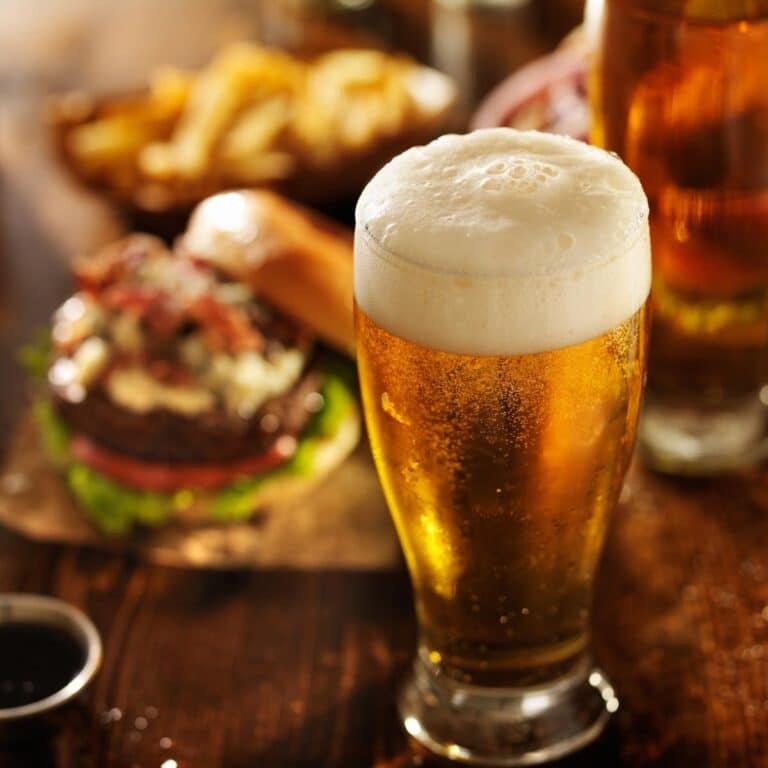





it would be helpful if the nutritional information was posted along with the recipes so that renal patients can watch their numbers better. knowing how much phosphorus, potassium, sodium, etc is crucial to renal patients' diet. i would think someone who wrote a book on the renal diet would have known this.